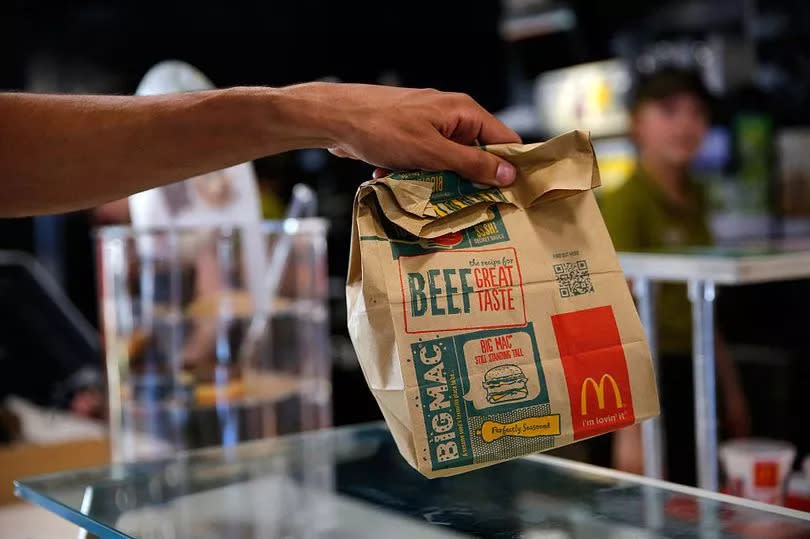Ex-McDonald's chef reveals why burgers and fries 'don't go mouldy' thanks to secret trick

A former McDonald's chef has revealed why the chain's food doesn't seem to go mouldy.
Mike Haracz, who goes by @chefmikeharacz on TikTok, worked in the corporate office of McDonald's and now shares insights into the company on his platform.
There have long been rumours that McDonald's products never go off. One YouTuber even found the fries, when stored in a jar, kept their perfect golden-brown appearance for 10 weeks after they were first purchased.
DebunkerSam made the discovery in a recently-resurfaced video titled 'The decomposition of McDonald's burgers and fries', first uploaded some 13 years ago. While the eatery's burgers take a few weeks longer than a local restaurant's offerings to grow mould, the chips look just as good as Day One by the end of the video.
"Look at that! What is wrong with that? there's not even one spore on there, it's not breaking down nothing. It looks like we bought them yesterday," he said of the fries on week 10.
In response, Haracz said: "Buns do mould, actually. I've worked at multiple fast-food places and seen multiple mould-ridden buns.
"They come into the store with mould sometimes. Well, that last part, that's not great. That means you're being shipped old buns or they have not been stored properly. But when anyone talks about the McDonald's burgers never going bad that is false. A lot of times, what is happened is that the bun or burgers are becoming dehydrated."
He continued, explaining that McDonald's uses mould inhibitors in its food to prevent them from growing mould for one to two weeks if stored correctly. He elucidated: "When everyone talks about them pulling out food from behind a seat that's been there for a year or whatever, it's a combination of dehydration and the fact McDonald's cooks their burgers and its meats well done so there's no raw protein."
"There's a lot less moist and fat in there. The fact they salt and season after it's cooked so that salt is dropping the water activity. Salt absorbs any free moisture and that free moisture is what microbes and things use to grow."
The topic ignited a debate among users, some of whom claimed theyd never seen mouldy McDonald's food, while others insisted that the meal develops mould just like any other product.
One user shared their experience: "I worked for a car dealership that took a trashed car trade-in. Two years later we got around to cleaning it. Found a McDonald's cheeseburger that looked like it was just made. Zero rot. bugs didn't eat."
Another chimed in with a contrasting account: "Oh yeah, I've definitely seen mold on buns at my job we just threw them away."
Meanwhile, a third user offered a different perspective: "As someone who's worked for McDonald's for 10 years, I've never seen a moldy bun ever. People don't realise how much safety goes into their food."
McDonald's has been approached for comment.

 Yahoo News
Yahoo News 
